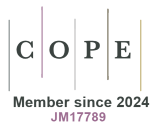About the Journal
Editorial board | For contributors | Publication and research ethics | Editorial policies
Aims and scope
Health technology assessment (HTA) is a discipline in which global policies and guidelines are applied at regional level. Global and Regional Health Technology Assessment (GRHTA) is an international, indexed, peer-reviewed, open access, online only journal, which aims to promote health technology assessment and economic evaluation globally and/or regionally, supporting the decision-making process among alternative therapeutical approaches and technologies with different clinical and economic outcomes.
The journal focuses on the role of scientific and technological advancement in reaching higher healthcare standards and on the intrinsic limitations within each region in allocating resources in healthcare. These topics are of great relevance to the local academic communities and policymakers for their impact on healthcare governance in different countries.
Global and Regional Health Technology Assessment adopts a double-blind peer-review process, which means that reviewer identity is not made visible to author, author identity is not made visible to reviewer, reviewer and author identity is visible to Editor in Chief and Associate Editors. Full details on the peer review process and editorial policies can be found here.
The journal publishes new articles continuously, as soon as they receive final approval from the authors and are assigned page numbers (online first, as customary now for scientific journals) and then collected in an issue, to guarantee rapid publication times and a timely content availability for its indexing databases. Authors retain the copyright of their article published in GRHTA are free to reproduce and disseminate their work. Full details can be found here.
Articles published by GRHTA are made freely and permanently accessible online immediately upon publication, without subscription charges or registration barriers. Full information on the open access policy can be found here
All of this journal content is archived in Portico, which provides permanent archiving for electronic scholarly journals.






